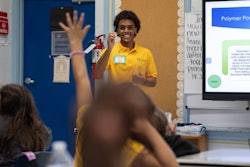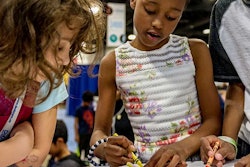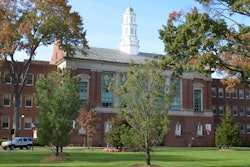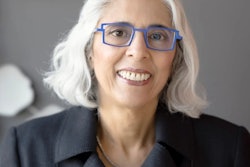Fascinated with the unknown and working with her hands, Dr. Andrea L. Tyler was told she matched the skillset of an engineer during a career assessment test in high school.
She disagreed.
Instead, Tyler wanted to work as a medical doctor specializing in obstetrics and gynecology.
As part of her school’s career program, she was paired with a doctor to shadow in the field. However, after learning the amount of schooling required of a medical doctor, Tyler reconsidered the engineering suggestion.
With a newly found passion for the science, technology, engineering and mathematics (STEM) field, she pursued mechanical engineering at North Carolina Agricultural and Technical State University.
“I love taking things apart and putting it back together,” said Tyler, who is currently the director of graduate student services and a research associate at Tennessee State University (TSU). “I’ll look at something and say, “how does it work? That car is rolling down the street. What’s making that car turn? Always at a young age thinking about the entire internal components of stuff, if you will.”
After graduation, Tyler received a job working in New Orleans at the National Aeronautics and Space Administration’s (NASA) Michoud Assembly Facility.
Her team oversaw the external fuel tanks of space shuttles, which fall off mid-flight and are retrieved from the ocean. Once the fuel tank was brought back to the facility, Tyler and her team tested and inspected it for damage.
As one of the first Black females within her department, she felt that people saw her as a “token” and felt out of place.
“I was having to prove myself,” she said. “That experience really toughened my skin. Knowing your stuff but still being questioned on your intellect. Being questioned as to whether it was your intellectual capital that got you there or the fact that you were a Black female.”
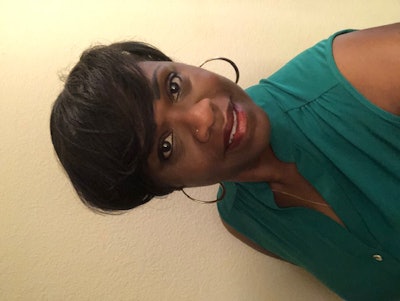 Dr. Andrea L. Tyler
Dr. Andrea L. TylerAfter the Space Shuttle Challenger exploded in 1986, Tyler was laid off alongside many other engineers due to downsizing within NASA.
Faced with uncertainty around her next career move, she landed a job as the director of technology at Dayton Public Schools.
It was there—in the K-12 environment—that the education “bug” bit her. Wanting to make a direct impact on students’ lives, Tyler went back to earn her Ph.D. in educational leadership from Miami University in Ohio.
Her first introduction to higher education was at the University of Dayton. There, she conducted research on the experiences of people of color in STEM, especially Black females. After a while, due to low representation at the university, she found herself talking to the same people.
As a graduate of a historically Black university, Tyler wanted to return to an HBCU. She became a research associate and director of graduate student services at TSU.
Outside of continuing her research, mentorship has been a major aspect of her career. Serving as director of the POTUS Fellowship Program, Tyler works with doctoral students to fund their education in STEM.
She said that her proudest moment is seeing her students go from being “scared of the unknown” in their first few days of the program, to eventually walking across the stage at graduation. Many attribute their success in the program to Tyler’s mentorship.
“Sometimes, it is hard to put into words that you made that big of an impact on a young person’s life,” said Tyler. “Now, you let them go and they spread their wings. That is so rewarding to me by far. It always will be.”
Reflecting on conversations with her peers and her own experiences growing up in a single parent home, Tyler felt that success—especially within STEM–was never expected of her. Those experiences drove her to write a book.
“At the time, I didn’t know the labels that would be put upon me,” she said. “Now, I look back, I can see them quite clearly, which I speak against them and on them quite frequently. But at the time I didn’t really realize it. All I know was, this is what I wanted to do, in spite of people telling me that I couldn’t. I am a very determined and dedicated person.”
After years of struggling to find a publisher, Seeing The HiddEn Minority: Increasing the Talent Pool through Identity, Socialization, and Mentoring Constructs, was eventually released last year. Written in the form of an anthology, the book highlights the importance of promoting access and diversifying the STEM pipeline.
“There are diamonds in the rough,” said Tyler. “There are people, students out there that are succeeding. In order for us to do better, we must talk about the good that is out there and see ways in which that can be replicated so that we can increase the talent pool.”
Sarah Wood can be reached at [email protected].





